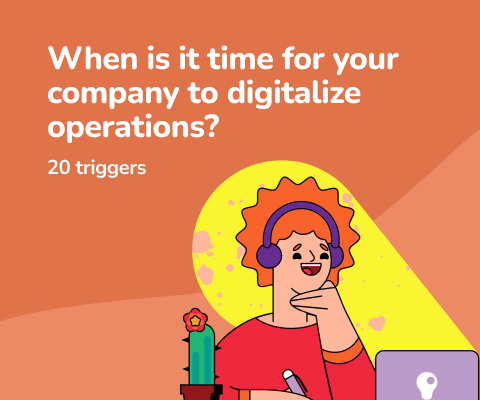February 11th, 2026, posted in for_founders
by Miruna
So you’ve got a development team and you want to embark onto a new software project. Whether big or small, building an app takes a lot of time and effort, and it’s not always easy to tell if you can pull it off on your own. Your resources might be limited, and you could end up having to choose between your existing software and your new business ventures.
It’s not easy to decide whether you’ll build a new project on your own or through an outsourcing company. Hiring someone else comes with its own costs & liabilities - you don’t know them, you gotta explain what you do, and there’s no guarantee they’ll deliver.
But if you’re already running an entire business and building onto an existing app, your resources might be depleted and taking on a whole new project could be too much. You might be unsure if you can really pull it off on your own, at least not if you’re looking towards a fast release.
In that situation, hiring a software outsourcing company could be beneficial. But how do you even make that choice? Well, that’s what we’re going to talk about in this article.
Outsourcing your software project
Let’s go back to the basics for a second: what does it even mean to outsource software?
Outsourcing software means hiring a development company to build a project for you. You’d work in close contact with them and they’ll keep you in the loop every step of the way. You can keep focusing on your day to day activity while your software partners build your new app.
This means letting them take a lead and do all the hard work, but it doesn’t mean you have to be entirely hands off. You have to sit with them and brainstorm, explain what your business does, tell them exactly how you want and how you want it. It’s important to decide on these key details before even hiring an outsourcing company.
Before you hire them, talk with your team and decide:
- Exactly what you’re building. Decide what the app scope is, key features, and who the app is for.
- How big the project should be. Are you releasing an MVP or building something bigger? Or both? Deciding this from the start can help outsourcing companies gauge how many resources you’ll need and for how long.
- What you’d like it to look like. If you have certain visual preferences, or have a visual branding in mind for your new software project, make sure your team is on the same page about them and keep good track of them to share with your technical partners.
- How many people you’ll need to work on it. If your financial resources are low, decide on how much you’re willing to spend, overall and as hourly rates. This will determine how many people you can hire.
- What kind of roles you’ll need. Maybe some people on your team are available to do part of the work. Discuss availability and whether you need people familiar with technologies your team isn’t specialized in. Or maybe you just need part of the work done, such as design or testing.
Once you’ve made these key decisions, you can start looking for outsourcing companies. Ask other business owners in your industry if they can recommend someone, or check Clutch to see who’s specialized in the kind of work you need. Or go back to the basics and just google outsourcing companies.
Once you’ve chosen someone, sit down with them and work on the app together. They’ll need you the most at the beginning, until they get the hang of your business. Be available to answer questions, hold constant meetings and get involved as much as possible. Be careful, however, not to micromanage: be reasonable with your requests, say everything you need and want at once and not throughout multiple work iterations, and trust your technical partner’s expertise.
A good outsourced project relies on good project management. This is usually handled by the outsourcing company you hire, but here are a few factors to look out for:
- Do they keep technical tasks organized? Make sure your partners use platforms such as Jira or ClickUp to organize tasks, and that they keep them up to date. Ask them to let you access these boards so you can be kept in the loop about progress and answer any questions they may have about specific app features.
- Are they good communicators? While still choosing software outsourcing companies, make sure to check on their reviews, especially when it comes to communication. Make sure your partners can keep you updated on their work, that they’re transparent and that there isn’t a major language barrier.
- Are they willing to keep you involved? Unless you specifically want to be hands-off, make sure your technical partners let you get involved in your own project. You gotta be included in important app scope conversations, you gotta approve designs and user stories before they head into code, and they should let you test the app before release.
Pros to outsourcing your software project
Outsourcing works best when you lack the technical resources to build the project yourself. Either the app has to be built on a specific technology that you’re not familiar with, or your dev team is busy with other tasks, or you lack developers altogether.
When you outsource a project, you leave it in the hands of a professional team that builds software for a living. They have expertise from building numerous apps for a variety of clients and industries. They’ll know what to ask you, what steps to take, and how long it would take to build the app in the first place.
By outsourcing, you avoid having to spend months recruiting new people to do design, code or quality assurance. This can become very costly and there’s no guarantee that the new employees will fit in or stay long enough to finish the entire project. And plus, once the project is released, do you fire everyone?
Cons to outsourcing your software project
You’re leaving your project in someone else’s hands, which means you have to trust them. But there’s no absolute guarantee that you’ll pick someone truly trustworthy. You can take measures to make sure they don’t do something unseemly, like stealing your property, not delivering anything, or building an app that’s totally different from what you asked for.
This is where your decision making comes into play, and your ability to pick a software partner who knows what they’re doing. If you'd like to work with us, for instance, but aren't convinced yet - we offer a free product roadmap as well as a free UI/UX assessment, so you can get an idea of our ideas and how we work.
When hiring someone to build software for you, especially when it’s something specialized, for a very specific type of audience, you’ll have to take the time to explain how you want it to work. You’ll need to make space in your schedule for brainstorming meetings and kick-off meetings. And not just that, you have to be patient and give your partners all the information they need.
Building software on your own
If your business already relies on software and thus already has an entire development team - that is, a project manager, a UI/UX designer, a tech lead, a frontend developer, a backend developer, and a tester - you could likely handle building your app on your own.
In such a situation, if you’re starting a new project, the biggest challenge will be splitting time and resources between your existing software and the new one. Which is more important? Can you divide work without leading your team to burn out? Carefully consider such factors before heading into building the project yourselves.
Now, in a situation where you’re building your own product for the first time, you won’t have to split time between different tasks - if you have the necessary roles in your team and the knowledge needed to build the software you want to build, then there’s no reason to outsource work.
In this case, you’re free to follow the Agile methodology and build software like all of us do.
What if you’re a lone wolf, though? If you’re an ambitious developer and you want to build your own software project, there are a few things to consider:
- Are you well-versed enough in the technologies needed in order to work on the app alone? If you’re just a frontend developer, you’ll need to learn backend technologies, and vice versa.
- Can you handle the UI/UX part of your app? Is design an important element for you, is it something that can affect your app/business? Is the software you’re building particularly complex? Consider whether or not you can come up with good user flows on your own.
- Can you test your software before release? You might not be able to find your own bugs. You might, unintentionally, test your software as it should work. But doing unconventional things in an app is a great way to find bugs or issues. Do you have enough testing practice to be able to do it on your own?
Pros to building software on your own
When doing your own software, you’ve got free reign to do what you want, when you want to. You’re not conditioned by anything except your own capabilities as a team or individual. You’re doing work for yourself and you’re not answering to someone else. This gives you freedom to do your own software as you want it, as opposed to just getting tasks from someone else or having to trust strangers to do them for you.
When building your own software, you don’t have to spend time explaining concepts to people who don’t know anything about them. You don’t have to explain the nature of your business or what kind of users the app should have. Your team should already know. This saves a lot of time and effort.
You already know everyone working on the project. You’re not hiring anyone or vetting anyone. You’ve already hired and got to know the people who’ll work on your new software project, you know who can do what and how well they work overall.
Cons to building software on your own
Doing whatever you want, when you want to, can lead to lack of structure and discipline. More so if you and your team are close friends and have trouble giving orders to one another. Remember to stick to the Agile methodology - structure work into sprints, set deadlines, and hold regular meetings to discuss progress.
You might realize you lack expertise for whatever you’re trying to build. Maybe you lack a good UI/UX designer or you need to have learned Python or React Native for the type of app you’re building, and you’ve only seen a few videos on those technologies. In this situation, you’d spend extra time and effort learning these skills before even getting started on building the app itself.
Similarly, if you’re building a whole new app, you might require user research. What are the odds that your existing team can handle doing this on their own? Can they find potential users and create structured interviews and then analyze data? If not, you might need to hire someone.
You might not have enough manpower. This is especially tricky if you’ve already released a piece of software and you’re building something new. What happens when something breaks in the first app but everyone is on a deadline for the other one? How do you prioritize?
Takeaways
Building software is not easy and it doesn’t happen overnight. When trying to decide if you should hand this over to someone else, start by weighing the pros and cons or by doing a SWOT analysis. What are your current strengths, worries, opportunities and threats?
Think carefully and consult with your entire team, make sure that they’re not burnt out by existing work before throwing another big project into their hands. Do they seem overwhelmed already? Then you might benefit from hiring an outsourcing company.
Similarly, if you need to learn new technologies for the app you want to build, ask yourself - is it worth the time and effort when you can work with someone already experienced in said technologies? Alternatively, you can work with this third party and learn this way. But in a time crunch, hiring someone else is more effective.
All in all, it comes down to the nature of your business, your workflows, the complexity of your project and your existing resources. Don’t take on more than you can handle.
Looking to outsource a software project? We do software for a living. Contact us and let’s talk about your project.

















